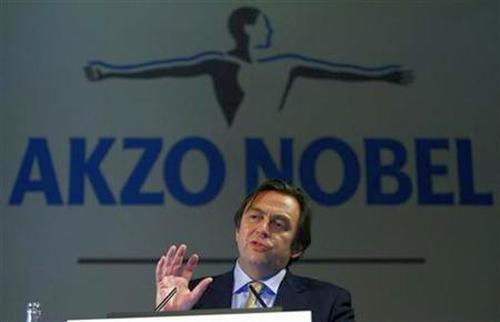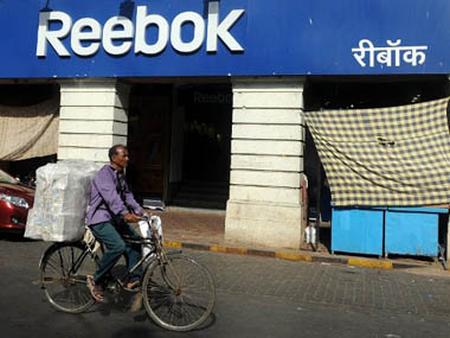 | « Back to article | Print this article |
The greed and double standards of MNCs in India
For Shriram Subramaniam, founder, InGovern, a Bangalore-based stakeholder advisory firm, February 7, 2012, would always be a special day. It is the day when minority shareholder activism in boardrooms of Corporate India got a much-needed shot in the arm, he says.
Akzo Nobel India, the domestic subsidiary of the Amsterdam-based largest paints company in world, in an extraordinary board meeting at its Kolkata headquarters, passed a resolution to merge three unlisted Indian entities with it.
There is nothing unusual about foreign MNCs merging and consolidating their India operations. In this case, though, a clutch of minority shareholders - who held 40.5 per cent stake in the company - raised questions on the valuation parameters of the unlisted entities.
They also questioned the increase in royalty to the Dutch parent company by the Indian subsidiary from 1 per cent to 3 per cent of total sales.
A month before, InGovern had come out with a report on Akzo Nobel India flagging off the issues surrounding conflict of interest between majority and minority stakeholders. Subramaniam and his team went about explaining this to shareholders over email and telephone.
Minority shareholders strike back
The education bore fruit. In the board meeting, the management of Akzo Nobel India was just about able to muster adequate number of votes to pass the merger resolution - 76.85 per cent of votes polled in favour, just marginally above the mandatory requirement of 75 per cent.
Click NEXT to read more...
The greed and double standards of MNCs in India
Around 45 per cent of non-promoter shareholders voted against the proposal. Akzo Nobel India said valuations of the listed and the unlisted entities were done by two third-party agencies.
The merger was approved, but the management had to yield ground over the issue of royalty payment - effecting a partial rollback from proposed 3 per cent to 2 per cent.
"Minority shareholders realised the power of their voice in the board room," says Subramaniam.
The fact that it took place on the board of an Indian subsidiary of a multinational adds a new dimension, especially in the light of a slew of recent, unrelated incidents - alleged fraud at Reebok India, and the on-going internal investigation of corruption at Walmart's operations in India, China and Mexico.
How and why
Both analysts and shareholder advisory firms are unanimous in their view that MNCs on paper have better corporate governance standard at the parent level as compared to most of their Indian peers. The fault lines appears in their treatment of Indian subsidiaries - both listed and unlisted.
While corruption and fraud are lapses, MNCs have other issues to deal with. "There is a tendency to drive down valuation of entities that are being merged to get a better deal for the parent," says Kaushik Dutta, director, Thought Arbitrage Research Institute, a Delhi-based think tank.
Click NEXT to read more...
The greed and double standards of MNCs in India
Many MNCs are also caught in the web of issues surrounding transfer pricing while consolidating their operations. There are instances of increase in royalty pay-out to parents, even when Indian subsidiary's profitability has come down.
Shareholder advisory firms point out that in Indian arms of some of the marquee MNC brands, independent directors and auditors are not changed regularly, while the chairman of the audit committee are not independent - practices that are followed diligently at the parent level.
"It is a clear case of double standards that some MNCs follow," says JN Gupta, an ex-SEBI executive, and founder of Stakeholders Empowerment Services, a shareholder advisory firm.
The jury is still out on whether the latest instances, Reebok India, and investigations at Walmart are one-off incidents of lapses of internal governance, or a case of the parent looking the other way to maximise business in a fast-growing market.
Many analysts that Business Standard spoke to did not wish to comment on the alleged fraud in Reebok India, which has landed two Indian executives in jail, or the "suspension" of associates by Walmart as part of an internal probe in India.
Some cited a conflict of interest as they have multinationals as clients, others said the Reebok and Walmart cases were one-offs. A few said these showed lapses in internal governance standards and too much reliance of the parent company on their local partners to run the business on the ground.
"At times, lapses crop up in unlisted local entities of an MNC as they may not be under strict watch of the parent," said Nick Paulson-Ellis, country head, Espirito Santo Securities, an independent analyst firm.
Click NEXT to read more...
The greed and double standards of MNCs in India
"These recent instances are tip of the iceberg," says Gupta. In a KPMG survey on corporate frauds, more than half those polled said they have faced bribery and corruption issues within the organisation. Of these, 44 per cent were foreign companies.
"Subsidiaries at times are more focused on meeting business objectives of the parent company, than requirements of local regulations," said N Venkatram, managing partner (audit), Deloitte Haskins and Sells.
The low rate of conviction in the country does not act as a deterrent. Corporate governance systems in India are still evolving. "We are still at a formative stage," says Venkatram.
Many foreign countries, such as the United States, are strengthening their own efforts to rein in any corrupt practices in companies operating in foreign markets.
The fear of the law in their parent country can force MNCs to launch internal probes such as the one by Walmart. The retailer said it had spent $51 million on the investigation, reported The Wall Street Journal.
MNCs are expected to follow corporate governance standards with the same rigour as the parent company in all the countries they operate from.
"The onus is on the parent company to enforce the rigor in corporate governance practices," says Harinderjit Singh, senior partner, PwC India.
Flipping the coin
Joe Pehlan, country director, India, International Business Leaders Forum, which works with 150-odd MNCs across the globe, flips the coin to look at the other side. "Indian companies face the same pressure when they enter a market such as Africa," he says.




